afterLoad (456.22KB) (4.01ms)
afterInitialise (1.27MB) (62.55ms)
afterRoute (870.41KB) (21.43ms)
beforeRenderComponent com_tags (20.72KB) (963μs)
afterRenderComponent com_tags (1.65MB) (162ms)
afterDispatch (27.14KB) (7.32ms)
beforeRenderRawModule mod_articles_category (READ MORE...) (388.12KB) (15.33ms)
Before Access::preloadComponents (all components) (56.7KB) (567μs)
After Access::preloadComponents (all components) (103.05KB) (2.63ms)
Before Access::getAssetRules (id:8 name:com_content) (840B) (18μs)
After Access::getAssetRules (id:8 name:com_content) (7.05KB) (43μs)
afterRenderRawModule mod_articles_category (READ MORE...) (6.33KB) (159ms)
beforeRenderRawModule mod_tags_popular (Search) (4.81KB) (26μs)
afterRenderRawModule mod_tags_popular (Search) (1.85KB) (95.35ms)
beforeRenderRawModule mod_custom (Remember to download Heart Healthy Seniors) (816B) (29μs)
afterRenderRawModule mod_custom (Remember to download Heart Healthy Seniors) (4.86KB) (224μs)
beforeRenderRawModule mod_custom (Get additionel and more detailed knowledge ) (752B) (13μs)
afterRenderRawModule mod_custom (Get additionel and more detailed knowledge ) (1.67KB) (27μs)
beforeRenderRawModule mod_custom (BOOST YOUR IMMUNE DEFENSE) (608B) (11μs)
afterRenderRawModule mod_custom (BOOST YOUR IMMUNE DEFENSE) (928B) (21μs)
beforeRenderRawModule mod_custom (Are you taking supplements) (736B) (9μs)
afterRenderRawModule mod_custom (Are you taking supplements) (1.03KB) (19μs)
beforeRenderRawModule mod_custom (Antiaging) (720B) (9μs)
afterRenderRawModule mod_custom (Antiaging) (1.02KB) (18μs)
beforeRenderRawModule mod_custom (Exercise) (720B) (8μs)
afterRenderRawModule mod_custom (Exercise) (1.02KB) (19μs)
beforeRenderRawModule mod_custom (Check this before you buy a Q10 product) (752B) (9μs)
afterRenderRawModule mod_custom (Check this before you buy a Q10 product) (944B) (18μs)
beforeRenderRawModule mod_custom (Chronic fatigue tied Alan to his bed but Q10 capsules saved him:) (245.53KB) (6.17ms)
afterRenderRawModule mod_custom (Chronic fatigue tied Alan to his bed but Q10 capsules saved him:) (960B) (51μs)
beforeRenderModule mod_custom (Chronic fatigue tied Alan to his bed but Q10 capsules saved him:) (768B) (4μs)
afterRenderModule mod_custom (Chronic fatigue tied Alan to his bed but Q10 capsules saved him:) (1.3KB) (60μs)
beforeRenderRawModule mod_custom (Cholesterol-lowering without side effects:) (368B) (12μs)
afterRenderRawModule mod_custom (Cholesterol-lowering without side effects:) (2.19KB) (25μs)
beforeRenderModule mod_custom (Cholesterol-lowering without side effects:) (752B) (2μs)
afterRenderModule mod_custom (Cholesterol-lowering without side effects:) (1.28KB) (29μs)
beforeRenderModule mod_articles_category (READ MORE...) (21.32KB) (1.47ms)
afterRenderModule mod_articles_category (READ MORE...) (1.25KB) (47μs)
beforeRenderModule mod_tags_popular (Search) (5.17KB) (14μs)
afterRenderModule mod_tags_popular (Search) (1.27KB) (25μs)
beforeRenderModule mod_custom (Remember to download Heart Healthy Seniors) (1.17KB) (11μs)
afterRenderModule mod_custom (Remember to download Heart Healthy Seniors) (1.3KB) (21μs)
beforeRenderModule mod_custom (Get additionel and more detailed knowledge ) (368B) (9μs)
afterRenderModule mod_custom (Get additionel and more detailed knowledge ) (1.3KB) (20μs)
beforeRenderModule mod_custom (BOOST YOUR IMMUNE DEFENSE) (224B) (9μs)
afterRenderModule mod_custom (BOOST YOUR IMMUNE DEFENSE) (1.28KB) (20μs)
beforeRenderModule mod_custom (Are you taking supplements) (352B) (9μs)
afterRenderModule mod_custom (Are you taking supplements) (1.28KB) (19μs)
beforeRenderModule mod_custom (Antiaging) (336B) (9μs)
afterRenderModule mod_custom (Antiaging) (1.27KB) (19μs)
beforeRenderModule mod_custom (Exercise) (336B) (9μs)
afterRenderModule mod_custom (Exercise) (1.25KB) (19μs)
beforeRenderModule mod_custom (Check this before you buy a Q10 product) (352B) (8μs)
afterRenderModule mod_custom (Check this before you buy a Q10 product) (1.28KB) (19μs)
beforeRenderRawModule mod_menu (Main menu-US) (20.94KB) (1.57ms)
afterRenderRawModule mod_menu (Main menu-US) (152.66KB) (2.5ms)
beforeRenderModule mod_menu (Main menu-US) (720B) (5μs)
afterRenderModule mod_menu (Main menu-US) (4.36KB) (54μs)
beforeRenderRawModule mod_languages (Sprogskift) (3.44KB) (18μs)
afterRenderRawModule mod_languages (Sprogskift) (32.3KB) (4.57ms)
beforeRenderModule mod_languages (Sprogskift) (720B) (5μs)
afterRenderModule mod_languages (Sprogskift) (5.31KB) (21μs)
beforeRenderRawModule mod_finder () (6.34KB) (11μs)
afterRenderRawModule mod_finder () (214.16KB) (6.46ms)
beforeRenderModule mod_finder () (704B) (5μs)
afterRenderModule mod_finder () (5.79KB) (35μs)
beforeRenderRawModule mod_custom () (6.62KB) (140μs)
afterRenderRawModule mod_custom () (22.66KB) (4.26ms)
beforeRenderModule mod_custom () (704B) (6μs)
afterRenderModule mod_custom () (1.23KB) (48μs)
beforeRenderRawModule mod_menu (Main menu-US) (5.07KB) (102μs)
afterRenderRawModule mod_menu (Main menu-US) (5.8KB) (1.66ms)
beforeRenderModule mod_menu (Main menu-US) (720B) (4μs)
afterRenderModule mod_menu (Main menu-US) (1.25KB) (49μs)
beforeRenderRawModule mod_languages (Sprogskift Mobil) (912B) (18μs)
afterRenderRawModule mod_languages (Sprogskift Mobil) (3.89KB) (633μs)
beforeRenderModule mod_languages (Sprogskift Mobil) (720B) (3μs)
afterRenderModule mod_languages (Sprogskift Mobil) (1.27KB) (29μs)
beforeRenderRawModule mod_finder () (2.3KB) (9μs)
afterRenderRawModule mod_finder () (6.29KB) (2.58ms)
beforeRenderModule mod_finder () (704B) (5μs)
afterRenderModule mod_finder () (1.23KB) (47μs)
beforeRenderRawModule mod_custom () (8.66KB) (178μs)
afterRenderRawModule mod_custom () (904B) (147μs)
beforeRenderModule mod_custom () (704B) (3μs)
afterRenderModule mod_custom () (2.43KB) (26μs)
beforeRenderRawModule mod_custom () (688B) (85μs)
afterRenderRawModule mod_custom () (896B) (99μs)
beforeRenderModule mod_custom () (704B) (2μs)
afterRenderModule mod_custom () (2.71KB) (24μs)
afterRender (288.21KB) (11.06ms)
| 1 x afterRenderComponent com_tags (1.65MB) (28.04%) | 161.80ms |
| 1 x afterRenderRawModule mod_articles_category (READ MORE...) (6.33KB) (27.56%) | 159.05ms |
| 1 x afterRenderRawModule mod_tags_popular (Search) (1.85KB) (16.52%) | 95.35ms |
| 1 x afterInitialise (1.27MB) (10.84%) | 62.55ms |
| 1 x afterRoute (870.41KB) (3.71%) | 21.43ms |
| 1 x beforeRenderRawModule mod_articles_category (READ MORE...) (388.12KB) (2.66%) | 15.33ms |
| 1 x afterRender (288.21KB) (1.92%) | 11.06ms |
| 1 x afterDispatch (27.14KB) (1.27%) | 7.32ms |
| 1 x afterRenderRawModule mod_finder () (214.16KB) (1.12%) | 6.46ms |
| 1 x beforeRenderRawModule mod_custom (Chronic fatigue tied Alan to his bed but Q10 capsules saved him:) (245.53KB) (1.07%) | 6.17ms |
| 1 x afterRenderRawModule mod_languages (Sprogskift) (32.3KB) (0.79%) | 4.57ms |
| 1 x afterRenderRawModule mod_custom () (22.66KB) (0.74%) | 4.26ms |
| 1 x afterLoad (456.22KB) (0.7%) | 4.01ms |
| 1 x After Access::preloadComponents (all components) (103.05KB) (0.46%) | 2.63ms |
| 1 x afterRenderRawModule mod_finder () (6.29KB) (0.45%) | 2.58ms |
| 1 x afterRenderRawModule mod_menu (Main menu-US) (152.66KB) (0.43%) | 2.50ms |
| 1 x afterRenderRawModule mod_menu (Main menu-US) (5.8KB) (0.29%) | 1.66ms |
| 1 x beforeRenderRawModule mod_menu (Main menu-US) (20.94KB) (0.27%) | 1.57ms |
| 1 x beforeRenderModule mod_articles_category (READ MORE...) (21.32KB) (0.25%) | 1.47ms |
| 1 x beforeRenderComponent com_tags (20.72KB) (0.17%) | 963μs |
| 1 x afterRenderRawModule mod_languages (Sprogskift Mobil) (3.89KB) (0.11%) | 633μs |
| 1 x Before Access::preloadComponents (all components) (56.7KB) (0.1%) | 567μs |
| 1 x afterRenderRawModule mod_custom (Remember to download Heart Healthy Seniors) (4.86KB) (0.04%) | 224μs |
| 1 x beforeRenderRawModule mod_custom () (8.66KB) (0.03%) | 178μs |
| 1 x afterRenderRawModule mod_custom () (904B) (0.03%) | 147μs |
| 1 x beforeRenderRawModule mod_custom () (6.62KB) (0.02%) | 140μs |
| 1 x beforeRenderRawModule mod_menu (Main menu-US) (5.07KB) (0.02%) | 102μs |
| 1 x afterRenderRawModule mod_custom () (896B) (0.02%) | 99μs |
| 1 x beforeRenderRawModule mod_custom () (688B) (0.01%) | 85μs |
| 1 x afterRenderModule mod_custom (Chronic fatigue tied Alan to his bed but Q10 capsules saved him:) (1.3KB) (0.01%) | 60μs |
| 1 x afterRenderModule mod_menu (Main menu-US) (4.36KB) (0.01%) | 54μs |
| 1 x afterRenderRawModule mod_custom (Chronic fatigue tied Alan to his bed but Q10 capsules saved him:) (960B) (0.01%) | 51μs |
| 1 x afterRenderModule mod_menu (Main menu-US) (1.25KB) (0.01%) | 49μs |
| 1 x afterRenderModule mod_custom () (1.23KB) (0.01%) | 48μs |
| 1 x afterRenderModule mod_articles_category (READ MORE...) (1.25KB) (0.01%) | 47μs |
| 1 x afterRenderModule mod_finder () (1.23KB) (0.01%) | 47μs |
| 1 x After Access::getAssetRules (id:8 name:com_content) (7.05KB) (0.01%) | 43μs |
| 1 x afterRenderModule mod_finder () (5.79KB) (0.01%) | 35μs |
| 1 x afterRenderModule mod_languages (Sprogskift Mobil) (1.27KB) (0.01%) | 29μs |
| 1 x beforeRenderRawModule mod_custom (Remember to download Heart Healthy Seniors) (816B) (0%) | 29μs |
| 1 x afterRenderModule mod_custom (Cholesterol-lowering without side effects:) (1.28KB) (0%) | 29μs |
| 1 x afterRenderRawModule mod_custom (Get additionel and more detailed knowledge ) (1.67KB) (0%) | 27μs |
| 1 x beforeRenderRawModule mod_tags_popular (Search) (4.81KB) (0%) | 26μs |
| 1 x afterRenderModule mod_custom () (2.43KB) (0%) | 26μs |
| 1 x afterRenderModule mod_tags_popular (Search) (1.27KB) (0%) | 25μs |
| 1 x afterRenderRawModule mod_custom (Cholesterol-lowering without side effects:) (2.19KB) (0%) | 25μs |
| 1 x afterRenderModule mod_custom () (2.71KB) (0%) | 24μs |
| 1 x afterRenderRawModule mod_custom (BOOST YOUR IMMUNE DEFENSE) (928B) (0%) | 21μs |
| 1 x afterRenderModule mod_custom (Remember to download Heart Healthy Seniors) (1.3KB) (0%) | 21μs |
| 1 x afterRenderModule mod_languages (Sprogskift) (5.31KB) (0%) | 21μs |
| 1 x afterRenderModule mod_custom (BOOST YOUR IMMUNE DEFENSE) (1.28KB) (0%) | 20μs |
| 1 x afterRenderModule mod_custom (Get additionel and more detailed knowledge ) (1.3KB) (0%) | 20μs |
| 1 x afterRenderRawModule mod_custom (Are you taking supplements) (1.03KB) (0%) | 19μs |
| 1 x afterRenderRawModule mod_custom (Exercise) (1.02KB) (0%) | 19μs |
| 1 x afterRenderModule mod_custom (Are you taking supplements) (1.28KB) (0%) | 19μs |
| 1 x afterRenderModule mod_custom (Antiaging) (1.27KB) (0%) | 19μs |
| 1 x afterRenderModule mod_custom (Check this before you buy a Q10 product) (1.28KB) (0%) | 19μs |
| 1 x afterRenderModule mod_custom (Exercise) (1.25KB) (0%) | 19μs |
| 1 x Before Access::getAssetRules (id:8 name:com_content) (840B) (0%) | 18μs |
| 1 x afterRenderRawModule mod_custom (Check this before you buy a Q10 product) (944B) (0%) | 18μs |
| 1 x beforeRenderRawModule mod_languages (Sprogskift) (3.44KB) (0%) | 18μs |
| 1 x beforeRenderRawModule mod_languages (Sprogskift Mobil) (912B) (0%) | 18μs |
| 1 x afterRenderRawModule mod_custom (Antiaging) (1.02KB) (0%) | 18μs |
| 1 x beforeRenderModule mod_tags_popular (Search) (5.17KB) (0%) | 14μs |
| 1 x beforeRenderRawModule mod_custom (Get additionel and more detailed knowledge ) (752B) (0%) | 13μs |
| 1 x beforeRenderRawModule mod_custom (Cholesterol-lowering without side effects:) (368B) (0%) | 12μs |
| 1 x beforeRenderRawModule mod_custom (BOOST YOUR IMMUNE DEFENSE) (608B) (0%) | 11μs |
| 3 x beforeRenderModule mod_custom () (704B) (0%) | 11μs |
| 1 x beforeRenderModule mod_custom (Remember to download Heart Healthy Seniors) (1.17KB) (0%) | 11μs |
| 1 x beforeRenderRawModule mod_finder () (6.34KB) (0%) | 11μs |
| 2 x beforeRenderModule mod_finder () (704B) (0%) | 10μs |
| 1 x beforeRenderRawModule mod_custom (Antiaging) (720B) (0%) | 9μs |
| 1 x beforeRenderModule mod_custom (Get additionel and more detailed knowledge ) (368B) (0%) | 9μs |
| 1 x beforeRenderModule mod_custom (BOOST YOUR IMMUNE DEFENSE) (224B) (0%) | 9μs |
| 1 x beforeRenderModule mod_custom (Are you taking supplements) (352B) (0%) | 9μs |
| 1 x beforeRenderModule mod_custom (Exercise) (336B) (0%) | 9μs |
| 2 x beforeRenderModule mod_menu (Main menu-US) (720B) (0%) | 9μs |
| 1 x beforeRenderRawModule mod_custom (Are you taking supplements) (736B) (0%) | 9μs |
| 1 x beforeRenderRawModule mod_custom (Check this before you buy a Q10 product) (752B) (0%) | 9μs |
| 1 x beforeRenderModule mod_custom (Antiaging) (336B) (0%) | 9μs |
| 1 x beforeRenderRawModule mod_finder () (2.3KB) (0%) | 9μs |
| 1 x beforeRenderRawModule mod_custom (Exercise) (720B) (0%) | 8μs |
| 1 x beforeRenderModule mod_custom (Check this before you buy a Q10 product) (352B) (0%) | 8μs |
| 1 x beforeRenderModule mod_languages (Sprogskift) (720B) (0%) | 5μs |
| 1 x beforeRenderModule mod_custom (Chronic fatigue tied Alan to his bed but Q10 capsules saved him:) (768B) (0%) | 4μs |
| 1 x beforeRenderModule mod_languages (Sprogskift Mobil) (720B) (0%) | 3μs |
| 1 x beforeRenderModule mod_custom (Cholesterol-lowering without side effects:) (752B) (0%) | 2μs |









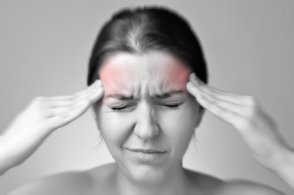 Migraines may be caused by a number of things and cannot be cured as such. A variety of medications have been designed specifically to treat migraines and, in addition, certain drugs that are commonly used to treat other disorders may even help relieve or prevent migraines. However, an increasing number of migraine sufferers seek more natural ways to deal with their recurrent migraine attacks and one remedy that has attracted a substantial amount of interest is the vitamin-like compound coenzyme Q10.
Migraines may be caused by a number of things and cannot be cured as such. A variety of medications have been designed specifically to treat migraines and, in addition, certain drugs that are commonly used to treat other disorders may even help relieve or prevent migraines. However, an increasing number of migraine sufferers seek more natural ways to deal with their recurrent migraine attacks and one remedy that has attracted a substantial amount of interest is the vitamin-like compound coenzyme Q10.


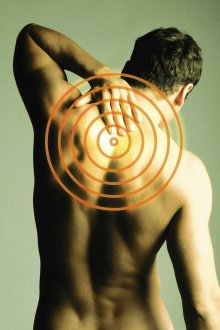 shed some light on the longstanding mystery: Why do we see so many people treated with cholesterol-lowering statins experiencing muscle pain and in some cases, also impaired glucose tolerance. The answer is a lack of Q10!
shed some light on the longstanding mystery: Why do we see so many people treated with cholesterol-lowering statins experiencing muscle pain and in some cases, also impaired glucose tolerance. The answer is a lack of Q10!

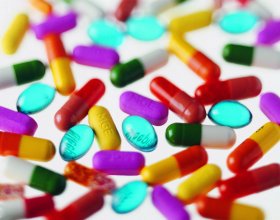 Are manufacturers of nutritional supplements making a whole-hearted effort of documenting their products? Or do they often get away with hot air? If you browse through the web sites of Danish supplement producers it seems rather obvious that only very few are actually able to put their money where their mouth is.
Are manufacturers of nutritional supplements making a whole-hearted effort of documenting their products? Or do they often get away with hot air? If you browse through the web sites of Danish supplement producers it seems rather obvious that only very few are actually able to put their money where their mouth is.
 Statins do more than lower your cholesterol. They have an array of side effects but you can effectively counteract them by taking coenzyme Q10 together with your drug.
Statins do more than lower your cholesterol. They have an array of side effects but you can effectively counteract them by taking coenzyme Q10 together with your drug.
 Swedish scientists wrote medical history when they discovered that supplementation with Q10 and selenium could halve a person's risk of dying from cardiovascular disease. Now, a 10-year of the Swedish study shows that taking these two supplements even has a notable long-term effect on cardiac function and lifespan.
Swedish scientists wrote medical history when they discovered that supplementation with Q10 and selenium could halve a person's risk of dying from cardiovascular disease. Now, a 10-year of the Swedish study shows that taking these two supplements even has a notable long-term effect on cardiac function and lifespan.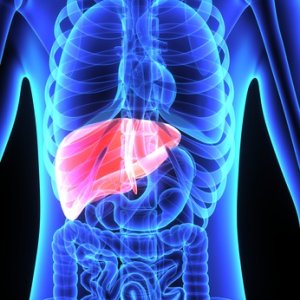 Researchers have found that sufferers of non-alcoholic fatty liver disease (NAFLD) can protect themselves by taking the vitamin-like substance coenzyme Q10.
Researchers have found that sufferers of non-alcoholic fatty liver disease (NAFLD) can protect themselves by taking the vitamin-like substance coenzyme Q10.
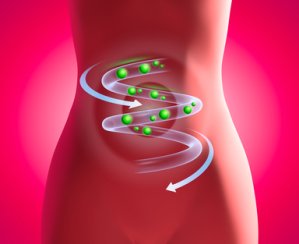 ms of coenzyme Q10 in the body - ubiquinone and ubiquinol - only one of them is able to document an effect. This was recently ascertained by one of the leading Q10 researchers in the world.
ms of coenzyme Q10 in the body - ubiquinone and ubiquinol - only one of them is able to document an effect. This was recently ascertained by one of the leading Q10 researchers in the world. of cardiovascular disease. Diet and lifestyle play a crucial role in prevention, and there are certain supplements which have been shown to reduce heart-related deaths by over 50%.
of cardiovascular disease. Diet and lifestyle play a crucial role in prevention, and there are certain supplements which have been shown to reduce heart-related deaths by over 50%. Overweight often leads to type-2 diabetes and the early stage of the condition known as insulin resistance. A new scientific study suggests that oxidative damage, also known as oxidative stress, sets the stage for these disturbances in the body's sugar and lipid metabolism. The doctors behind this study therefore theorize that it is possible to prevent type-2 diabetes with antioxidants that are known to counteract oxidative stress.
Overweight often leads to type-2 diabetes and the early stage of the condition known as insulin resistance. A new scientific study suggests that oxidative damage, also known as oxidative stress, sets the stage for these disturbances in the body's sugar and lipid metabolism. The doctors behind this study therefore theorize that it is possible to prevent type-2 diabetes with antioxidants that are known to counteract oxidative stress. "After about one week of taking the Q10 supplement I could feel a huge difference," says 23-year old Alan Piccini, who has been suffering from extreme fatigue and muscle aches ever since he was a child.
"After about one week of taking the Q10 supplement I could feel a huge difference," says 23-year old Alan Piccini, who has been suffering from extreme fatigue and muscle aches ever since he was a child. “Taking capsules with co-enzyme Q10 has freed me of the severe side effects of my cholesterol lowering medicine,” Mrs Franken explains.
“Taking capsules with co-enzyme Q10 has freed me of the severe side effects of my cholesterol lowering medicine,” Mrs Franken explains.